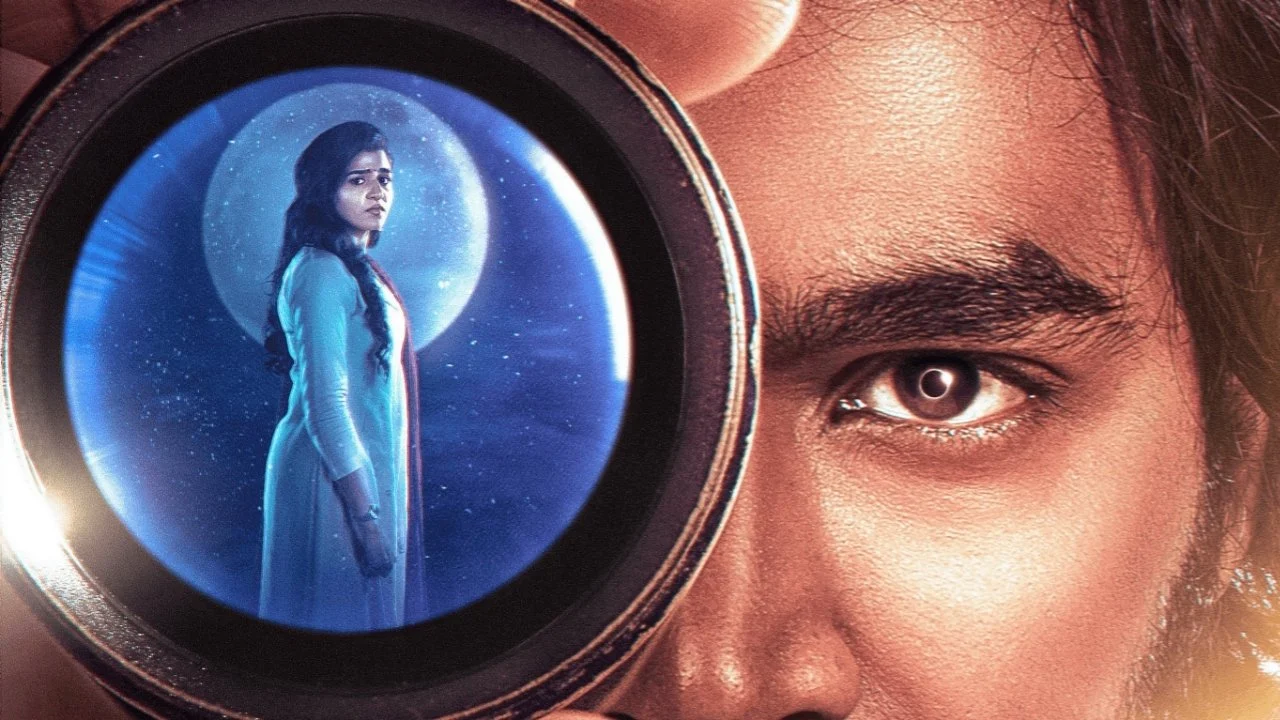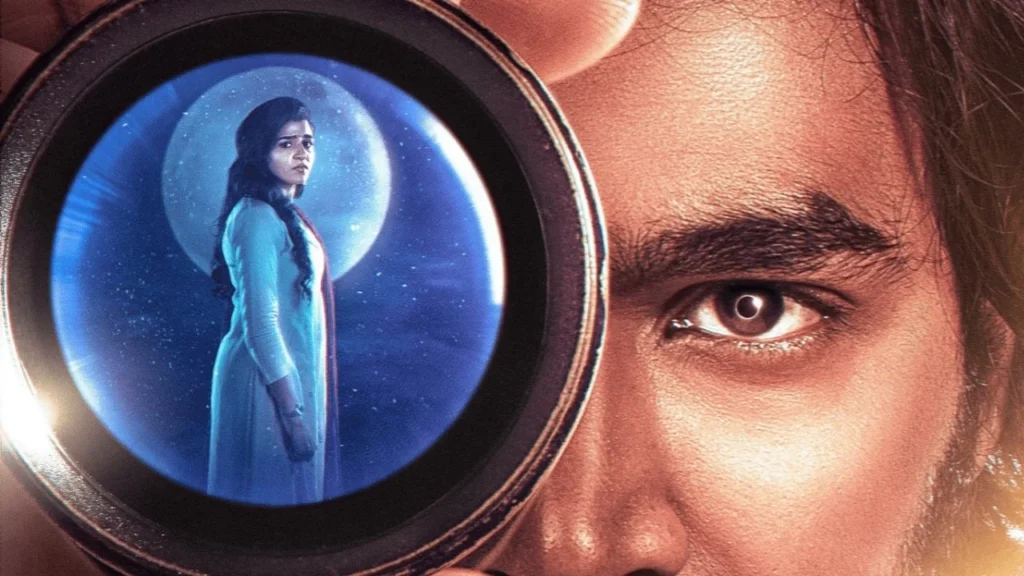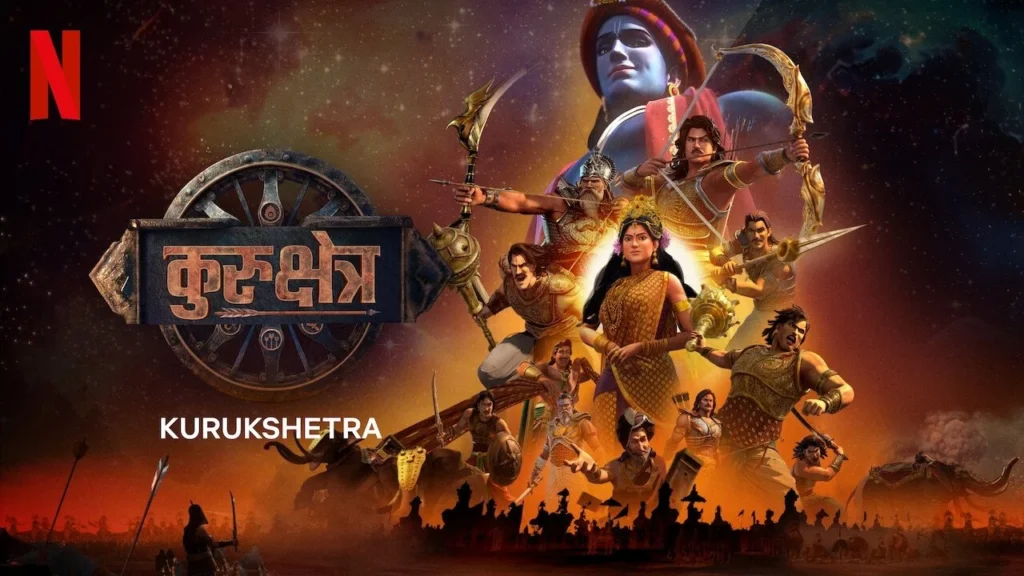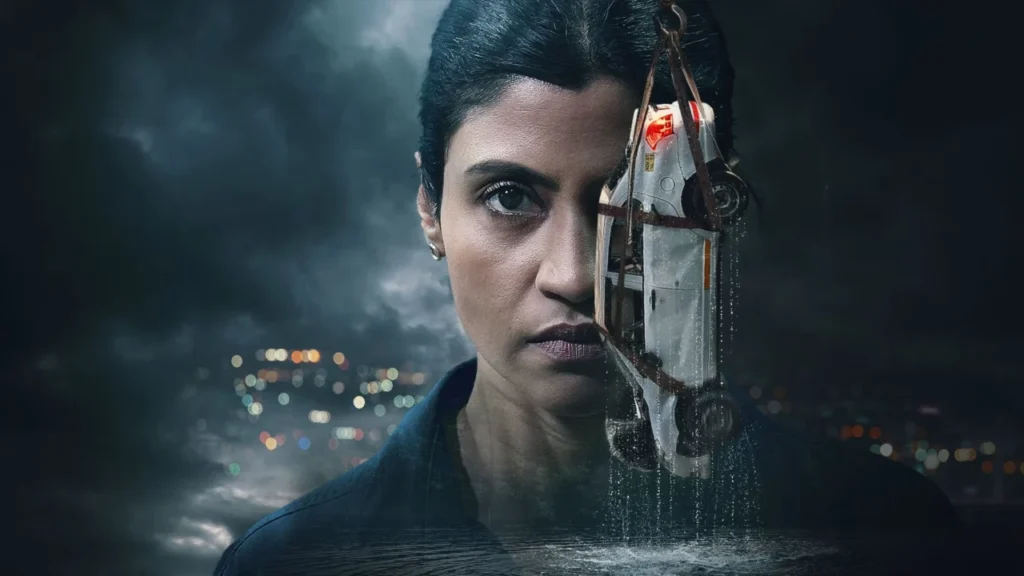Director M. Sundar ventures into unusual storytelling with Andha 7 Naatkal, a film that dares to question fate itself. The movie features newcomer Ajitej opposite Shriswetha, with the legendary K. Bhagyaraj in a supporting part. The cast also includes Jeeva Subramanian, Namo Narayana, Vishnu Priyan, and Thalaivasal Vijay.
Backed by Bestcast Studios, this romantic thriller with science fiction touches bills itself as Tamil cinema’s first story centered around a telescope. Though it borrows its name from a 1981 film, the narrative here takes a completely different route.

The Narrative
Space physics student Adithya stumbles upon an ancient telescope one evening during a rare solar eclipse. The location? Birla Planetarium, where sky and mystery meet. Looking through the lens changes everything. He spots Nila, a woman who captures his heart instantly.
But there’s a catch. This isn’t your ordinary telescope. It grants him an unwanted gift – the ability to spot death approaching when he looks into anyone’s eyes. Reality hits hard when he realizes Nila’s time is running out. She has a week left, maybe less.
A dog bite complicates matters further, turning the abstract countdown into something terrifyingly concrete. Adithya won’t sit idle. He decides to fight destiny head-on. The telescope carries its own tragic past, stretching back three centuries, weaving historical mystery into modern romance.
Performances That Matter
First-timer Ajitej shoulders the lead role with surprising maturity. Playing Adithya means showing grief, desperation, and stubborn hope all at once. I found his work honest, even if rough around the edges in places. Some scenes demand more than a debut performance can deliver, particularly when emotions peak.
Yet his pairing with Shriswetha creates believable chemistry. You buy them as lovers, which is half the battle won. Their scenes together feel lived-in rather than staged, giving the romance necessary grounding.
K. Bhagyaraj appears briefly as a political figure. Even limited screen time can’t diminish his screen presence. He brings authority to scenes that need it. Thalaivasal Vijay shows up in flashback portions that explain the telescope’s backstory. His segments add emotional texture missing elsewhere.
Namo Narayana and Jeeva Subramanian do what supporting actors should – they support without stealing focus. Vishnu Priyan fills his space competently. The ensemble works as a unit, even if some deserved more to work with.
Where It Succeeds
Credit goes to Sundar for attempting something genuinely different. Tamil cinema doesn’t often touch science fiction romance, let alone mix it with supernatural elements. The telescope that predicts death isn’t just a plot device – it becomes a character itself, heavy with history and consequence.
The Birla Planetarium opening sequence catches your eye immediately. Shooting during an eclipse gives the film visual gravitas from frame one. It announces itself as something willing to take chances. That confidence matters.
I appreciated the makeup work showing Nila’s physical decline. It’s neither gratuitous nor glossed over. The effects stay grounded. That three-century backstory also deserves mention – it transforms what could have been simple fantasy into something with roots and depth.
Where It Stumbles
The opening hour tests patience. Too much gets explained through dialogue rather than shown through action. We hear about things instead of experiencing them. That’s a rookie mistake that hurts momentum.
The romance, crucial to making us care about the stakes, doesn’t quite reach the emotional depths required. I liked these characters, but did I feel devastated about their situation? Not always. That gap between what we should feel and what we do feel creates distance.
Halfway through, the story pivots hard into action territory. It’s jarring, like changing gears without a clutch. This shift needed finesse it doesn’t get. Suddenly we’re in a different movie, and not necessarily a better one.
Plot mechanics get shaky when you examine them closely. Events happen because the script needs them to, not because they follow logical progression. I found myself questioning too many choices, which pulls you out of the experience. When fantasy asks for suspension of disbelief, it must earn that trust through internal consistency.
Some talented actors vanish into underwritten roles. That’s wasted potential on screen. Certain sequences telegraph their outcomes too clearly, draining surprise from moments that should shock or move us.
Critical Response and Public Opinion
Chennai Vision awarded it 3.6 stars out of 5, appreciating its willingness to break molds. Their review highlighted the genre-blending ambition and visual storytelling. They found it refreshing despite flaws.
Audiences tell a different story. IMDb ratings sit at 9.4, suggesting regular moviegoers connect more strongly with the material than professional critics do. That gap isn’t uncommon – critics analyze structure while audiences chase feelings.
The film seems to work better for viewers seeking something different rather than something perfect. Its ambition resonates even when execution falters. Word-of-mouth appears positive overall, with recommendations coming with gentle warnings about the first half.
Final Assessment
The performances, particularly Shriswetha’s work and Ajitej’s sincere effort, anchor fantastical elements in human emotion. When the film focuses on two people fighting impossible odds, it resonates. The technical package – cinematography, music, makeup – maintains professional quality throughout.
Where it loses me is in translation from concept to screen. Interesting ideas need strong execution, and this film’s execution wavers. Pacing issues plague the first half. Tonal shifts disrupt flow. Logic gaps ask too much forgiveness. The balance between fantasy spectacle and emotional truth tips awkwardly.
I wanted to love this film more than I did. The telescope predicting death is brilliant as a metaphor for how we all live under mortality’s shadow. Exploring whether love conquers fate touches universal themes. But great concepts need great storytelling.
For viewers hungry for originality over perfection, Andha 7 Naatkal offers rewards. It’s the kind of film you might argue about after, which beats forgettable any day. Sometimes noble failure teaches more than safe success. This falls somewhere between those poles – neither complete failure nor total success, but something worth experiencing.
Rating: 3.5/5










